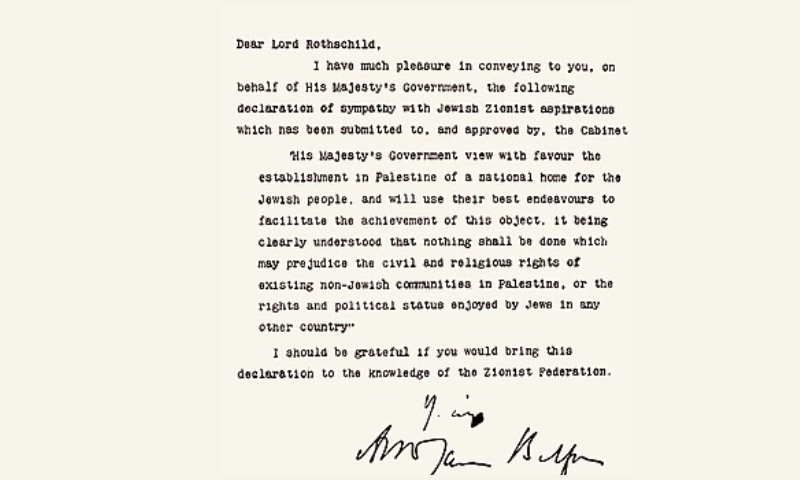Natalie Livingstone
WSJ, Oct. 13, 2022
“Under the women’s tutelage, he [Chaim Weizmann] learned the intricacies of London’s political class: who would be susceptible to his ideas and who would be resistant, which kind of story was suitable for the dinner table and which for the drawing room. Weizmann learned to tone down his man-of-the-people manner in a way that would make him and his cause more palatable to the conservative political tastes of Anglo-Jewry.”
On Nov. 2, 1917, British Foreign Secretary Arthur Balfour wrote a letter to Walter Rothschild, head of the English branch of the storied banking dynasty. Balfour wrote that “His Majesty’s Government view with favour the establishment in Palestine of a national home for the Jewish people, and will use their best endeavours to facilitate the achievement of this object, it being clearly understood that nothing shall be done which may prejudice the civil and religious rights of existing non-Jewish communities in Palestine, or the rights and political status enjoyed by Jews in any other country.”
The Balfour Declaration was a key victory for the Zionist movement and an important step toward the creation of the state of Israel in 1948. The story of the declaration has often been told, but more than a century later, the role of the women of the Rothschild family has been largely forgotten. While Balfour’s letter was addressed to Walter Rothschild, it would probably never have been written if it wasn’t for the work of three people: Peggy, Marchioness of Crewe—whose mother was born a Rothschild—and two younger women who had married into the Rothschild family, Dorothy and Rózsika.
Chaim Weizmann, the future first president of Israel, began his campaign to enlist Dorothy “Dolly” Rothschild in the cause of Zionism in November 1914, with a letter: “Madame la Baronne, Please forgive these lines, and I hope you won’t consider me an intruder,” he began. Dolly, just 19 years old, had joined the famous banking dynasty only the year before, when she married 36-year-old James Rothschild, a descendant of its French branch who lived in London. James was one of the few Rothschilds who was sympathetic to Zionism, but he was currently serving in the French Army, leaving his young wife to manage his affairs in Britain.
The young Weizmann spoke passionately about the threat of anti-Semitism and his dream of establishing a Jewish homeland in Palestine. …SOURCE


